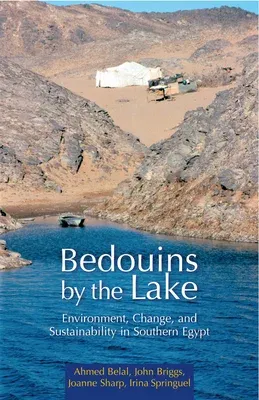Ahmed Belal
(Author)Bedouins by the Lake: Environment, Change, and Sustainability in Southern EgyptHardcover, 1 December 2008

Qty
1
Turbo
Ships in 2 - 3 days
In Stock
Free Delivery
Cash on Delivery
15 Days
Free Returns
Secure Checkout

Print Length
200 pages
Language
English
Publisher
American University in Cairo Press
Date Published
1 Dec 2008
ISBN-10
977416198X
ISBN-13
9789774161988
Description
Product Details
Book Format:
Hardcover
Country of Origin:
US
Date Published:
1 December 2008
Dimensions:
23.62 x
15.75 x
2.03 cm
ISBN-10:
977416198X
ISBN-13:
9789774161988
Language:
English
Pages:
200
Publisher:
Weight:
521.63 gm